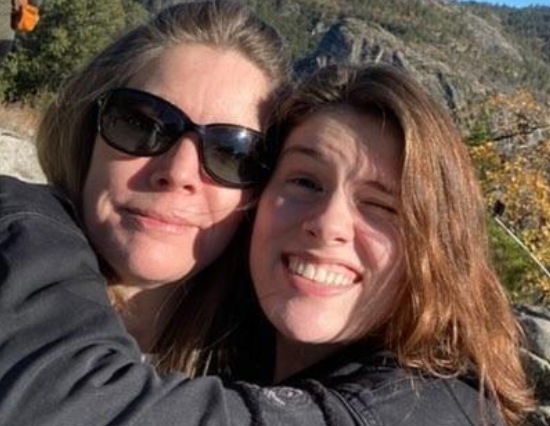Culture May 2, 2023


It was summer in Switzerland, but a wet, ungenial summer. A young, dark-eyed woman sat at a writing desk in a bedroom, getting little done. Byron seemed to be the only one accomplishing anything of substance on this trip.
Through the window she could see some bold captain sailing across Lake Geneva despite the storm forming in the distance.
Perhaps it was pity that made Byron propose his cursed experiment. “We’ll each write a ghost story,” he had declared on an otherwise peaceful night. In the days since, she had listened as the great poets conjured things too frightening to repeat, but she expected from herself a story that would rival those that inspired the challenge. A familiar dread coated her heart. Dull Nothing was her companion at the desk.
Mary had never been much of a writer. She had scribbled in her childhood, but she preferred listening and reading and dreaming.
She had come to know her mother by reading her works. She understood that both her parents were forerunners of thought, and she had no doubt that they had already imprinted history books.
What would become of the daughter of William Godwin and Mary Wollstonecraft?
She had spent nights listening to conversation between Lord Byron and Percy Bysshe Shelley. She admired and loved their radical convictions, and she wished she shared their freedom of spirit, their victorious hope of human perfection. She saw an enthralling fire within them but feared how it may catch.
“Have you thought of a story?”
The question had greeted her each morning since the challenge had been set. They only meant well. Darling Percy had encouraged her to write for some time now, convinced that her parentage had bestowed a great gift onto her. The thought of her companion gave her courage to leave the bedroom.
These were happy days in Geneva. Baby Willmouse was surely scuttling about somewhere. Death and grief were but words here, but hidden thoughts awoke at dusk.
On this dreary night of June, Percy’s face was lit by uneasy candlelight as he and Byron discussed life itself. Recent scientific experiments had suggested the potential of reanimation.
How could they not speak in whispers about such things? But they spoke, as they always did when discussing new possibilities, in voices which belied their understanding. A restlessness collected in the clouds outside.
It was far past the witching hour when the three retired for the night. Her mind remained submerged in the night’s subject. The sky outside the window had a strange brightness to it.
She prepared for sleep, knowing that the next morning she would be haunted by the question. She had just placed her head upon the pillow when the first lightning bolt struck.
Behind her closed eyes darkness took the shape of a pale student’s flight. What had he unleashed?
She opened her eyes and got up. The bed’s warmth could not protect her from the vision. The unearthly light of the storm crawled towards her. She went to the window to shut out the hideous night. Another bolt struck.
A dark figure towered over her. With his long black hair, he emerged from the night itself. The yellow, watery eyes of the dead met hers.
This is what the student fled from, a carelessly made progeny born of some intense wish. She found herself almost pitying him as he faded into the rain.
Some time may have passed. She turned back into the room, leaving the window as it was.
She sat at the writing desk. It was the only thing she could think to do after what she had seen. Surely the thing that had frightened her would frighten others.
The next morning she came out of the bedroom early. At last she had an answer to the question.
At first she thought but a few pages. A description of the creature would be enough. But soon the student, and then others, began to make themselves known, demanding more from her. She relied on Percy’s encouragement in this strange pursuit.
Almost a year after the vision, in England, she at last completed the novel. Frankenstein would be published anonymously, at first. She thought if it was known that such a creation was the handiwork of the fairer sex, it would be judged unfairly. Within her lifetime, though, she would take responsibility for her work.
Mary Shelley would look back on Frankenstein with an affection that did not suit the dark tale, for her fondness was truly for her memories of that summer in Geneva, of Willmouse, of darling Percy, and of the bolt of lightning that animated her being.
About Jessica McPeak: Jessica McPeak is an undergraduate in Design at UC Davis. In between classes and homework, she reads, practices guitar, and takes care of many plants. She’d like to thank the Stories Matter program for making this project possible.

About Stories Matter: A mentoring program founded by writer Leslie Zemeckis, and co-sponsored by the SBIFF and ENTITY Magazine, for young female writers, nurturing and inspiring the next generation of writers to tell their stories. A weekly intensive with published female author’s giving their time to encourage greatness and share their writing process. The theme was “A Woman You Should Know.” These stories are the best of the bunch, some remain works-in-progress, some will (hopefully) take these stories and turn them into longer pieces.